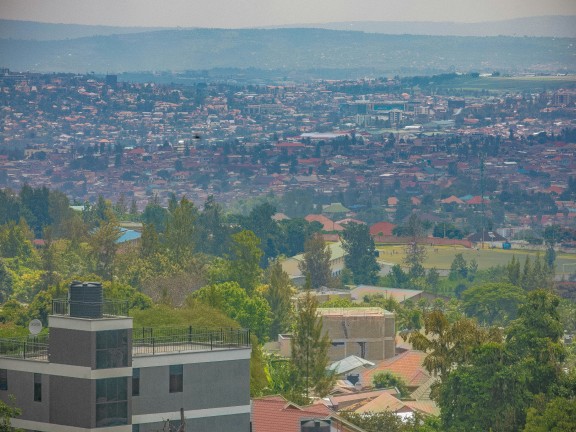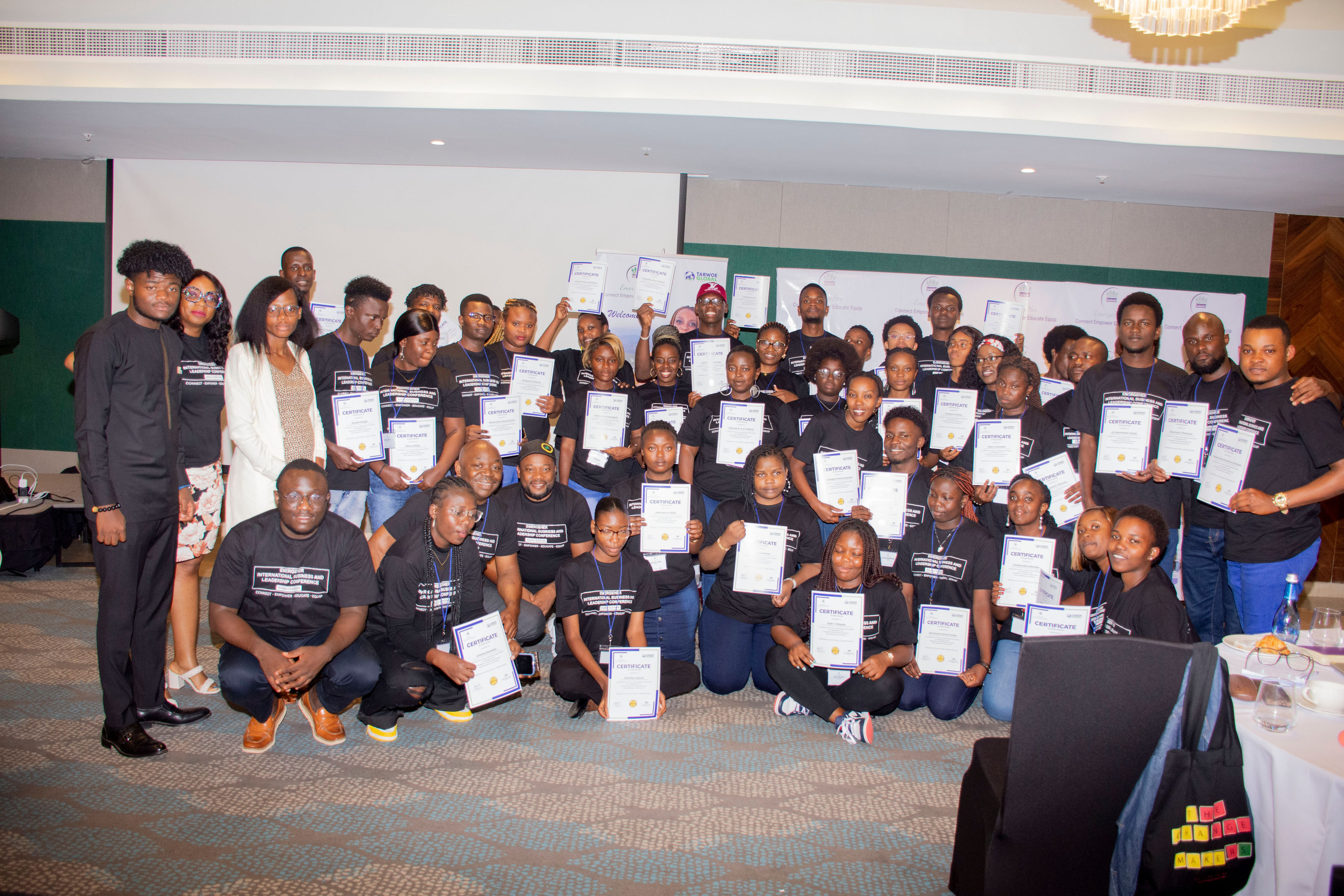David Briel’s Trip to Rwandan World Heritage Site: Kigali Genocide Memorial

In a world marked by historical scars and ongoing conflicts, a journey towards reconciliation and rebuilding stands as a beacon of hope. Recently, I had the privilege of conversing with David Briel, Deputy Secretary of the Office of International Development (OIBD PA), Department of Community and Economic Development of PA, about his impactful trip to the Kigali Genocide Memorial World Heritage Site in Rwanda. As America’s first World Heritage City, the Global Philadelphia Association's journalism program seeks to highlight the unique perspectives of regional leaders like Mr. Briel, offering insights into their experiences at world heritage sites across the globe and fostering meaningful conversations about the importance of preserving collective heritage.
Rwanda, a country once synonymous with tragedy, has emerged as a testament to resilience and progress. Mr. Briel shared his observations about Rwanda's transformation over the past three decades, highlighting its status as an increasingly prominent tourist destination known for stability, cleanliness, and hospitality. Amidst its breathtaking landscapes and diverse wildlife, the Kigali Genocide Memorial stands as a poignant reminder of Rwanda's tumultuous past and its remarkable journey towards healing.
The creation and evolution of the Kigali Memorial Site, which opened to the public in 2004, reflect Rwanda's commitment to preserving its history and fostering reconciliation. In the first week of its opening, over 1,500 survivors visited each day. Twenty years later, international visitors like Mr. Briel are making the journey to the site more and more frequently.
His first time in the country and on the continent, Mr. Briel emphasized the importance of this memorial, recounting his experience of witnessing Rwandan military personnel undergoing training at the site, symbolizing a nation grappling with its past while forging a path towards a more unified future.
As we delved deeper into the memorial's significance, Mr. Briel illuminated the complexities of Rwanda's history, tracing the roots of the genocide back to “colonial divisions exacerbated by external powers.” The involvement of colonial powers such as Belgium, France, and Germany in Rwanda's history contributed to the deepening of ethnic divisions. Through their policies of favoritism and manipulation, these colonial forces heightened tensions between the Tutsi and Hutu populations, laying the groundwork for the tragic genocide of 1994.
Beyond its designation as a UNESCO World Heritage Site, the Kigali Memorial holds profound meaning for Rwandans and visitors alike. Mr. Briel's reflections underscored the memorial's role in promoting a sense of national identity and unity, transcending the boundaries of ethnicity that once fueled conflict.
“Given the fact that the genocide took place just 30 years ago, Rwanda has made substantial efforts to reconcile and rebuild the country with a forward-looking trajectory that prioritizes economic development,” he stated.
His tour guide Jean Paul Niyomugabo, a Rwandan who owns a tour company called Classic Compass Tours that he started in 2017, added, “The memorial ensures that the memory of the genocide against the Tutsi in Rwanda is preserved for future generations, fostering healing and reconciliation within Rwandan society. Its UNESCO status increases visibility, drawing more visitors and boosting tourism revenue, which contributes to economic growth and development.”
Niyomugabo encourages visitors to educate themselves on Rwanda’s tumultuous history and recommends that they visit the memorial first during their visit because “it is the most informational place in the country in regards to pre- and post-colonial, genocidal, and modern history.”
In discussing his visit to Rwanda, Mr. Briel highlighted the country's remarkable progress in education and technology, exemplified by initiatives like Carnegie Mellon University's presence in Rwanda, a top ten university globally in numerous fields of study. The university, with its main campus located in Pittsburgh, Pennsylvania, established a global campus that offers master's degrees in Information Technology, Electrical and Computer Engineering, and Engineering Artificial Intelligence with the goal of “educating the next generation of African tech leaders and innovators.”
Christine Titih, founder of EmergeHer by Oaks of Central PA and CEO of CT Home Care Services, met with David Briel on her January trip to Kigali. Titih has made it her mission to empower, promote and advocate for the African immigrant and refugee community across Pennsylvania. EmergeHer aims to connect, empower, educate, and equip minority women in business.
She agreed with Mr. Briel on Rwanda’s progress, saying that the country “has made enormous strides over the last 30 years,” but that there is still room for improvement. She added, “Initiatives that support women entrepreneurs ultimately support poverty alleviation. Secondly, initiatives which are focused on encouraging collaboration between women, would go a long way to contribute to the country’s ongoing journey towards reconciliation.”
Putting her words into practice, in 2023 Titih took EmergeHer to Kigali. Once there, she hosted their first-ever international business and leadership conference. The two-day conference was attended by about 100 entrepreneurial youths with the goal of emphasizing how entrepreneurship is a powerful tool for women. Initiatives like Titih's, the emergence of entrepreneurial hubs, and the establishment of a leading technological university in Rwanda attest to the nation's commitment to progress, albeit acknowledging the ongoing challenges that lie ahead.

Mr. Briel also noted that the university is a “Pan-African endeavor with the idea of educating not just Rwandans, but Africans from all over the continent.” These efforts signify Rwanda's aspirations for a brighter future, driven by innovation and human capital development.
Similarly, when visitors from abroad visit Rwanda, Jean Paul Niyomugabo gives ideas to investors visiting the country and accommodates tourists. He added that there is “lots of opportunity within the domains of informational technology and for youth.” The Rwanda Development Board (RDB) facilitates investors coming to Rwanda and orients visitors. The board also connects interested entrepreneurs with the ministers of various governmental departments, who then provides support and training for approved project ideas.
In addition to visiting the memorial, David Briel noted that there are “large-scale national parks on the Rwandan-Tanzanian border with giraffes, elephants, rhinos, gorillas and all kinds of wonderful wildlife. In addition to exploring the country’s history and cities, this drives tourism and brings visitors to admire the incredible wildlife Rwanda has to offer.” Classic Compass Tours also offers tours to these parks, one of which, the Nyungwe National Park, is a UNESCO World Heritage Site.
Global Philadelphia’s conversation with David Briel regarding his visit to the Kigali Genocide Memorial World Heritage Site in Rwanda offers a nuanced perspective on the country's ongoing journey. His experience also underscores the importance of visiting world heritage sites not only for their historical significance but also for the opportunities they provide to reflect on shared humanity and promote cross-cultural understanding. As Rwanda continues to evolve, it serves as a compelling example of how confronting and learning from history can pave the way for a brighter future.
